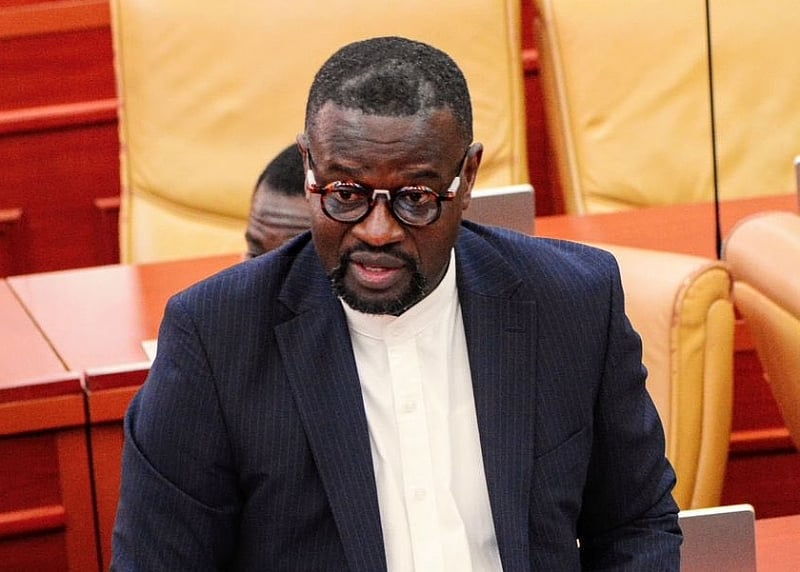The rising tide of violent crime and ritual killings in Ghana has prompted an urgent call for action from the Minority in Parliament. Deeply concerned by the escalating insecurity and the perceived government inaction, the Minority caucus is demanding an immediate appearance by Interior Minister Mohammed Muntaka Mubarak to provide a detailed account of the government’s security strategy. Characterizing the situation as “alarming,” they warn that the persistent violence is jeopardizing the lives of ordinary Ghanaians and eroding public trust in the nation’s security apparatus. The Minority’s call for accountability underscores the gravity of the situation, emphasizing the need for swift and decisive measures to restore law and order and reassure a frightened populace.
The Minority’s demand for a closed-door, emergency session with the Interior Minister, who also serves as the National Security Minister, highlights the sensitive nature of the security challenges facing the nation. Minority Chief Whip Frank Annoh-Dompreh stressed the urgency of the matter, invoking Order 60 to facilitate a confidential briefing where the Minister could provide updates and engage in frank discussions about the government’s response to the escalating violence. The Minority’s insistence on this closed-door session reflects their concern that the security situation requires immediate and focused attention, free from the constraints of public debate. Their emphasis on “national security implications” suggests that the escalating violence may have broader ramifications beyond individual criminal acts, potentially destabilizing the country’s social fabric and undermining public confidence in the government’s ability to protect its citizens.
Fueling the Minority’s concerns is a series of chilling incidents that have gripped the nation. The brutal murders of two students at Nalerigu Senior High School, gunned down on campus by unknown assailants, have sent shockwaves through the community and sparked fears of further violence. While local sources suspect a possible connection to the ongoing Bawku tribal conflict, official confirmation is still pending. The same night, another targeted attack unfolded at Bawku Senior High School, where a third-year student was dragged from his dormitory and shot dead. This latest incident prompted the immediate closure of the school, underscoring the precarious security situation and the urgent need to protect students and staff. These attacks on educational institutions, spaces traditionally considered safe havens, have amplified public anxiety and highlighted the vulnerability of even the most protected segments of society.
The violence is not confined to the northern regions; it has spread to other parts of the country, including the Ashanti Region. The recent fatal shooting of an unidentified man in Asawase by two motorcycle-riding assailants, coupled with the earlier killing of the Kusasi Chief of the Ashanti Region in a similar fashion, has deepened fears of unchecked violence and a rise in contract killings. The escalating violence in diverse locations suggests a broader breakdown in law and order, raising questions about the effectiveness of current security measures and the government’s ability to contain the spread of these criminal activities. The pattern of targeted killings, in particular, has instilled fear and uncertainty, as communities grapple with the apparent impunity enjoyed by the perpetrators.
The government’s response to the escalating violence in Bawku, where a revised curfew now severely restricts movement, reflects the desperate measures being taken to contain the escalating conflict. However, the Minority argues that these reactive measures are insufficient and that a more comprehensive and proactive approach is needed. They are demanding not only detailed briefings on the current security situation but also concrete policy responses that address the root causes of the violence and enhance preventative security measures across identified hotspots. The Minority’s call for a comprehensive strategy emphasizes the need to move beyond short-term solutions like curfews and address the underlying factors driving the violence, including tribal conflicts, access to weapons, and the perceived lack of accountability for perpetrators.
The Minority’s insistence on immediate investigations and concrete action underscores their belief that the recent spate of violence represents a systemic failure of the nation’s security apparatus. They argue that these incidents are not isolated events but rather indicative of a deeper malaise that requires urgent attention. Their call for a comprehensive security review and a clear articulation of the government’s strategy aims to restore public confidence and ensure the safety and security of all Ghanaians. The Minority’s proactive stance reflects their commitment to holding the government accountable for its responsibility to protect its citizens and maintain law and order. Their demands for transparency, accountability, and decisive action echo the growing public outcry for a safer and more secure Ghana.


